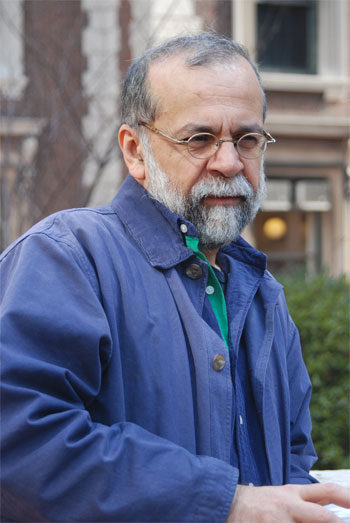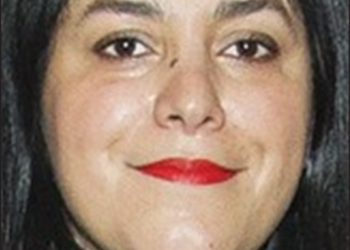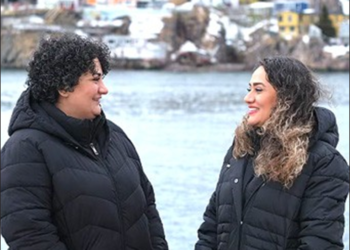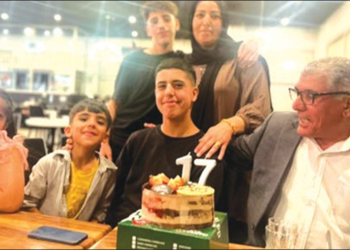December 06-2013

. . . Columbia U prof
For almost four decades, Prof. Hamid Dabashi, who now teaches at Columbia University in New York City, has lived in the United States and frequently traveled abroad with no difficulty whatsoever.
Last month, it all caught up with the Iranian-American.
November 13, he flew into New York’s JFK airport, returning from South Korea. “Upon exiting the airplane, I was met by two CBP (US Customs and Border Protection) agents who collected my passport and escorted me to their headquarters at the airport. I was then asked to empty all my pockets, and my small handbag was thoroughly searched. The agent in charge then picked a number of items in my possession—including my credit card receipts, driver’s license, Columbia University ID, iPhone, iPad, and a handbook in which I write my various notes,” Dabashi wrote in a column for Al-Jazeera English.
He said it appeared they were looking expressly for him as they looked at the passports of every passenger leaving the airport door until they got to him. Then that allowed everyone else to leave as they took him away.
“I was made to sit down while the CBP officers filled out forms for which they asked me detailed questions including my parents’ names, my height, weight, the color of my hair and eyes, my home address, etc. Then photocopies of the items the officers had taken from me were made—including a full photocopy of my notebook in which I write anything from the daily chores I need to do, to the outline of a lecture I have to give to my class, the outline of my columns for Al Jazeera….”
He was freed after almost three hours, and told by an officer that this was perhaps a case of mistaken identity. That officer also gave him a brochure that explained how he could seek redress if the procedure offended him.
The New York Times recently reported, “Getting through United States airports and border crossings has grown more difficult for everyone since the terrorist attacks of September 11. But Muslim Americans say they are having a harder time than most, sometimes facing an intimidating maze of barriers, if not outright discrimination. Advocacy groups have taken to labeling their predicament ‘traveling while Muslim,’ and accuse the government of ignoring a serious erosion of civil rights.”
Dabashi wrote, “I have no idea what might have triggered this incident. Over the past almost 40 years that I have lived in the US, nothing like this has happened to me. I have no reason to believe or disbelieve the officer’s assertion that this might be a case of mistaken identity. The officer who was copying my notebook and who happened to be Muslim, asked me if I were critical of Israel—for, he said, he had ‘seen this happening before’.”
Dabashi said, “It is the anonymity of your accusers and the total power ‘it’ or ‘they’ have over your being that is the most frightful part of this entire ordeal. Nobody tells you what you have done or not have done. ‘Someone has spotted you,’ the first officer who picked me up from the airplane told me, ‘and I must do certain things,’ he added, almost apologetically but dutifully. ‘Why, I don’t know,’ he added.”



















